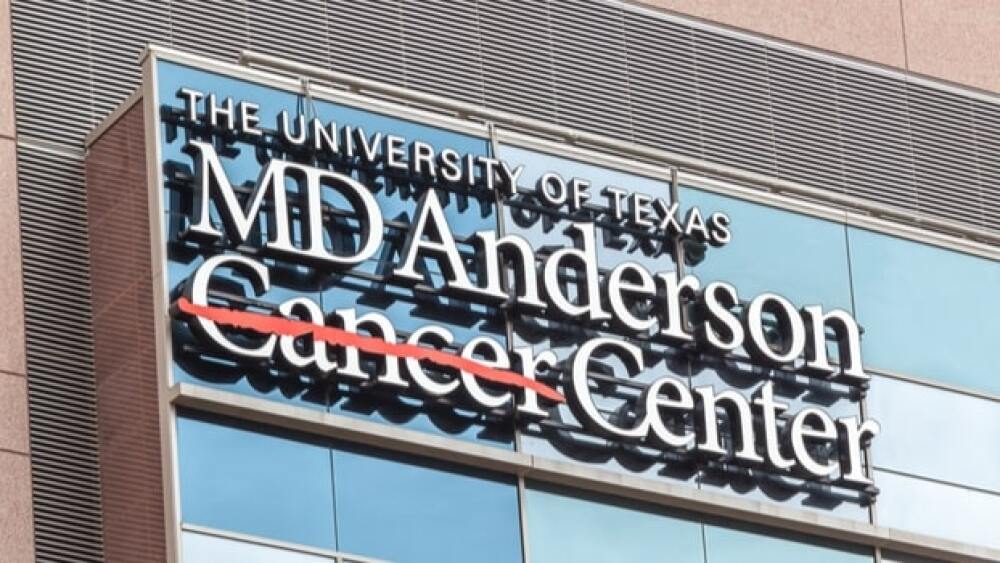With an initial capital of $50 million, MD Anderson and partner The Focus Fund hope to invest in small biotechs with big cancer-fighting potential.
JHVEPhoto/Shutterstock
When thinking of cancer treatment centers, you likely think of the MD Anderson Cancer Center in Houston, TX. In fact, they’ve been ranked No. 1 in adult cancer on U.S. News’ Best Hospitals for Cancer list. But they know they’re not the only ones out there with innovative ideas for cancer treatment.
In hopes to advance the best and brightest, MD Anderson, in partnership with The Focus Fund GP, has launched the Cancer Focus Fund to propel compelling investigational cancer therapies from preclinical development through Phase II clinical trials. The fund is already starting off with more than $50 million in initial capital.
Shara Avis Pecoraro, Manager of Strategic Industry Ventures at MD Anderson, compared the struggle of the small biotech startup with the age-old chicken or the egg first dilemma. Biotechs need funding in order to complete their studies and prove their potential, but to get the funding they first need to show some compelling data. That is what the MD Anderson’s Cancer Focus Fund aims to help solve.
The Cancer Focus Fund will provide investments for promising cancer therapeutics along with the full weight of their scientific and clinical trial expertise. The ultimate goal is to accelerate the otherwise halting progress of these promising therapies through to IND approval and Phase I and Phase II studies.
“The Cancer Focus Fund is a unique investment fund that aligns the scientific and clinical expertise of MD Anderson with business experts, public financing entities and private venture capital to propel promising cancer therapies toward pivotal trials,” said Ross Barrett, a founder and Managing Partner of Cancer Focus Fund. “We are delighted to work with MD Anderson in this effort and are optimistic that our approach will help companies successfully conduct clinical trials and bring more novel treatments to patients. We also believe our unique approach has the potential to reward our investors and thereby provide incentives for further investments in innovative cancer therapies.”
The partnership will be a joint effort between two committees to oversee programs. MD Anderson’s side will evaluate and choose potentially promising treatments to be considered for the fund while an investment committee of experienced biotech investors makes a decision based on the scientifically-backed recommendations. After IND approval, MD Anderson will continue to support the chosen therapies by designing and hosting clinical studies. Ochsner Health and LSU Health Shreveport have offered themselves as additional trial sites to increase patient access to studies.
MD Anderson has historically collaborated with biotechs and pharma companies to conduct cancer therapy research. But now they’ll be choosing the therapies themselves.
Cancer is still the No. 2 killer in America, just behind heart disease. In 2018, there were nearly 600,000 cancer deaths. Cancer has become a global crisis. The primary cancer treatments have been used since the beginning of the 20th century. Research is being done daily, filing over 2.5 million patents each year, but most of these patents never reach the path of testing their clinical potential.
This is where biotechs are essential to take promising discoveries from the research lab into a product that can be tested, approved and taken to market. Targeted therapies, genetic sequencing, gene editing, immunotherapies. These are the promising discoveries biotechs are desperately trying to develop and get into the clinical phase.
Too many potentially game-changing weapons in the war on cancer are ending up in the “Valley of Death”, due to lack of funding. The Cancer Fund aims to change that.
“Without appropriate support, we know that some therapies with great potential may be delayed, may not be developed properly in the clinical setting or may never make it into clinical studies,” MD Anderson senior VP Ferran Prat said in a statement. “Through investment from the Cancer Focus Fund and the support of MD Anderson, we hope to advance worthwhile new treatments past the traditional hurdles in the drug development process.”






